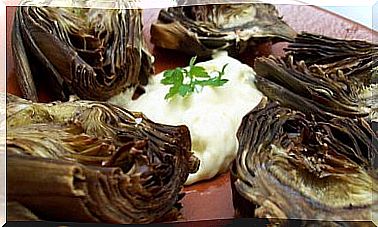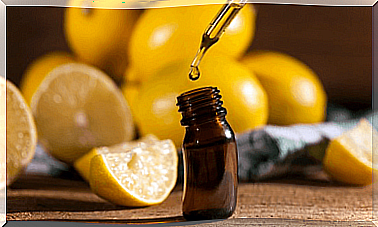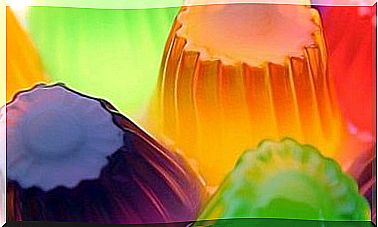Benefits And Risks Of Mullein Leaf
The benefits of mullein leaf have been used in the pharmaceutical industry for the manufacture of supplements and medicines. However, beyond this, it is used in its natural form as a supplement to improve health. However, it should not be overlooked that its consumption also carries certain risks. Do you want to know more about it?
The mullein plant, of which there are more than 200 species, is found in many parts of the world, including Europe, Western Asia, Africa, and North America. However, the variety most used for medicinal purposes is the common, whose scientific name is Verbascum thapsus.
Mullein leaf benefits
In traditional medicine, mullein leaf has been noted for its benefits for various respiratory and digestive problems. Due to its content of antioxidant and anti-inflammatory compounds, it has been positively associated with the prevention and treatment of some diseases.
According to a study published in the medical journal Pharmaceutical Biology , the plant concentrates polyphenols that intervene in well-being. Such compounds include the following:
- Saponins: which act as anti-inflammatory and analgesic.
- Flavonoids: whose antioxidant activity helps to inhibit the negative effects of free radicals.
- Phenylethanoids: which have anti-inflammatory, antioxidant and antiviral activity.
- Iridoids: monoterpenes with anti-inflammatory properties.
Now, it is convenient to be clear that mullein leaves are not a substitute for medicines and do not have the ability to cure diseases. They are simply an aid to temporarily calm the symptoms of some health problems. We detail them below.

1. Contributes to the treatment of respiratory infections
There is a wide variety of scientific research that attributes antiviral properties to mullein leaves. Its extracts are considered a supplement for conditions such as flu and colds.
Even its leaves and flowers are used against symptoms of bronchitis, pneumonia and asthma. A study by Rachelle Karman, a researcher at the American College of Healthcare Sciences , suggests that mullein tea helps alleviate symptoms such as coughing, wheezing, and excess mucus. However, it is not a first-line treatment.
2. Has antibacterial properties
In laboratory studies, such as one published in the Journal of Medicinal Chemistry , antibacterial properties have been found in mullein leaves. According to the publication, the plant acts against Gram-positive and Gram-negative bacteria, which include the following:
- Klebsiella pneumoniae.
- Escherichia coli.
- Staphylococcus aureus.
3. Contributes to improving the quality of sleep
It is not known for sure what are the mechanisms of mullein tea against sleep problems. However, some studies have determined that it acts as a natural sedative and, therefore, promotes a good quality of sleep in case of insomnia.
4. Supports digestive health
Mullein leaf benefits extend into the digestive system. Its infusion is used in traditional medicine to calm the symptoms of problems such as constipation. Even, paradoxically, it also works against diarrhea. Among other things, it reduces abdominal bloating and gas.
Mullein leaf risks
To date, published studies do not speak of significant side effects from consuming mullein leaf tea. In general, it is considered safe for most healthy adults. According to an article published in Contact Dermatitis , some species of the plant can cause dermatitis in people with sensitive skin.
Dermatitis is a skin reaction that can cause irritation, a rash, and itching. Therefore, in case of having a history of allergic reactions, it is better to avoid the plant. There is no information on its safety and efficacy during pregnancy and lactation. It is also not known if it is safe to use in young children.
In such cases, it is best to consult your doctor before taking mullein remedies. Likewise, it is advisable to exercise caution in case of chronic diseases or if you are taking medications.
How to take advantage of the benefits of mullein leaf?
To take this plant as a supplement to improve health there are several options. In herbal stores and pharmacies it can be purchased in tea bags, extracts, tinctures and capsules. Often, many consume it as an infusion, adding a teaspoon of dried leaves of the plant to a cup of boiling water.









